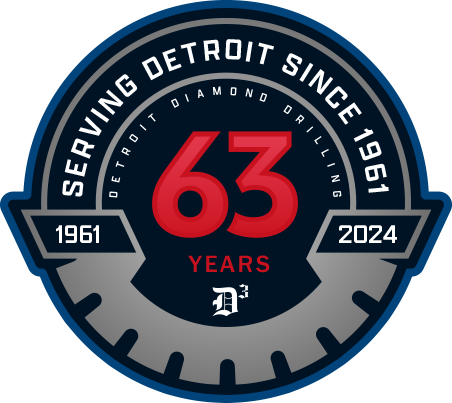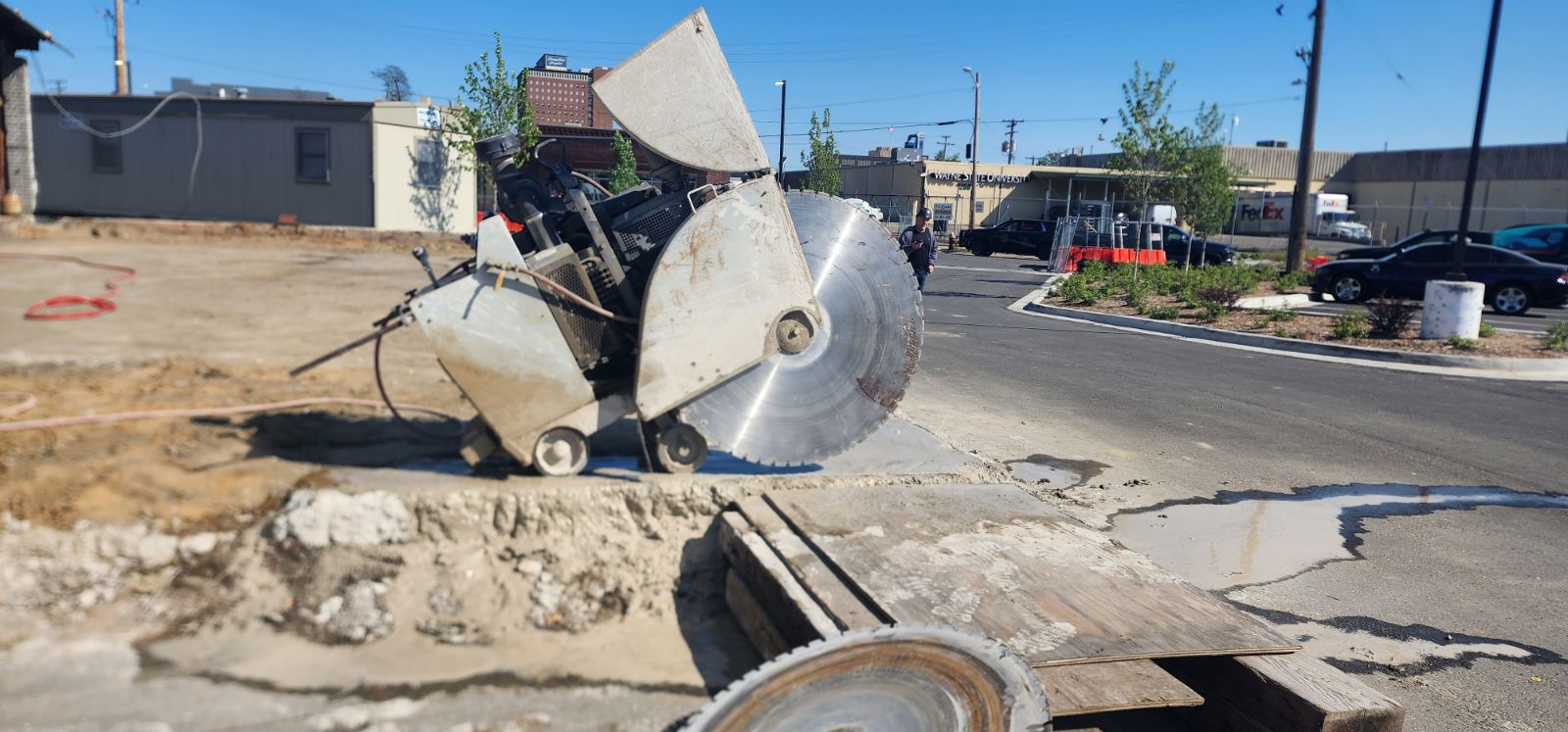How to Choose a Chainsaw Repair Specialist in Detroit
A well-maintained chainsaw keeps your projects running smoothly, whether you’re tackling construction, landscaping, or forestry work. But when it breaks down, finding a skilled and reliable repair specialist is key to getting it back in top shape. With so many options in Detroit, how do you know which repair shop to trust? In this guide, we’ll walk you through how to evaluate customer reviews, compare costs, check technician expertise, and ensure fast turnaround times. Whether you need a quick tune-up or a major repair, these tips will help you choose the best chainsaw service provider for your needs.
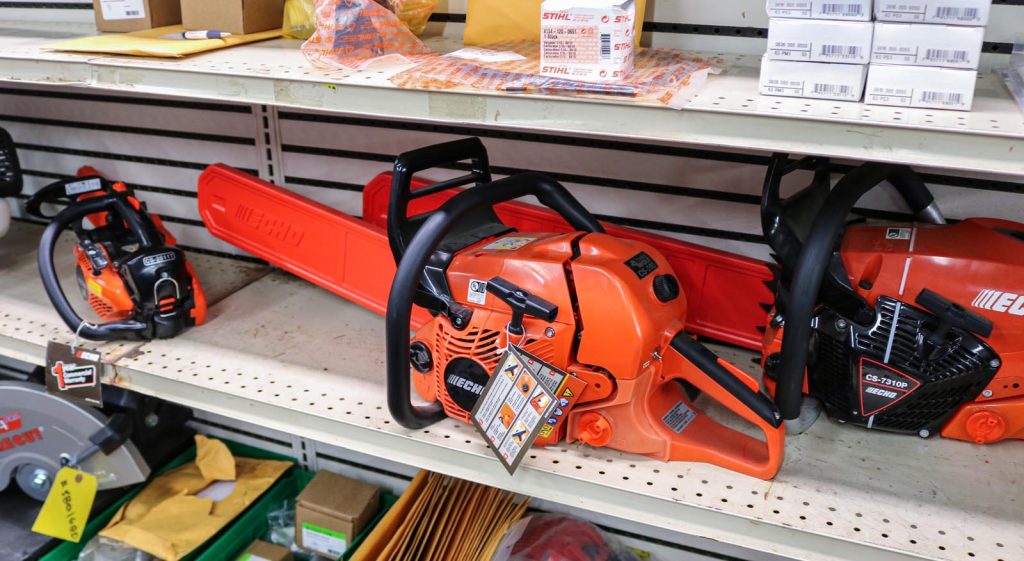
Evaluating Reputation and Reviews of a Chainsaw Repair Specialist in Detroit
Customer feedback paints a clear picture of a chainsaw repair specialist’s reliability. Reviews on platforms like Google, Yelp, and Angi discuss real customer experiences. These reviews are a great resource to evaluate workmanship, pricing, and service quality. Consistently high ratings and positive feedback are good indicators of a dependable chainsaw service provider. Conversely, a lack of response to multiple negative reviews can be a red flag, signaling a lack of accountability and/or poor communication with customers.
Checking Google, Yelp, and Angi for Customer Feedback
Start with a simple Google search of the business. A Google Business Profile lists customer ratings, comments, and photos, offering insight into a chainsaw mechanic’s experience. Yelp is another great source of information, with users often sharing details about professionalism and turnaround time. Angi, focused on service providers, offers reviews and ratings from verified customers.
- Look for trends: A single negative review means little, but multiple complaints about slow service or repeat repairs should raise concerns.
- Check the responses: A repair shop that engages with reviews—thanking customers or addressing issues—demonstrates accountability.
- Look beyond star ratings: Detailed reviews reveal more than just a number. Read comments about customer service, pricing transparency, and repair quality.
Exploring the About Us Page for Company History and Values
A well-maintained website often includes an About Us section detailing the company’s background, values, and expertise. Long-standing businesses with a history of serving Detroit’s construction industry demonstrate stability and experience. Shops emphasizing technician training, customer-first policies, or specialized chainsaw repairs usually have a strong commitment to service.
- Look for years in business: A shop repairing chainsaws in Detroit for decades likely has established expertise.
- Check for a mission statement: A commitment to quality service, transparency, or skilled craftsmanship sets reputable specialists apart.
- See if they mention specific brands: Shops experienced with major chainsaw brands are more likely to have the right tools and knowledge.
Customer reviews and company background together provide the clearest view of a chainsaw repair specialist’s reputation. For an extra level of feedback on local chainsaw repair in Detroit, also ask for recommendations from people you know. Considering customer feedback is the first step to narrowing down providers for reliable chainsaw service and repair.
The Importance of Experience and Expertise in Chainsaw Repairs
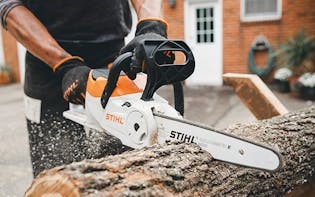
According to Husqvarna, there are three main areas with parts that cause the most common issues when it comes to chainsaws:
- “Fuel – [Carburetor], Fuel filter, Fuel mix, Hoses, Primer bulb, Breather
- Spark – Spark Plug, Ignition unit, HT & short Lead, Stop Switch, Flywheel
- Air – Air filter, [Carburetor], Manifold, Muffler, Hoses, Breather”
A chainsaw repair specialist with thorough hands-on experience handles every aspect of a project with confidence. It takes a trained eye and expert knowledge to accurately diagnose and apply the best solution for chainsaw repairs.
What Defines an Experienced Chainsaw Repair Specialist?
Time in the industry, certifications, and experience with different brands all contribute to a seasoned professional. Someone who has worked with Stihl, Husqvarna, and Echo chainsaws for over a decade knows their mechanical differences instinctively. Experience also means recognizing patterns, such as common failures in certain models.
- Hands-on knowledge: Repairing hundreds of chainsaws builds muscle memory for diagnosing mechanical issues.
- Familiarity with Detroit conditions: Cold winters and high-humidity summers can affect chainsaw performance in specific ways.
- Brand-specific expertise: Not all chainsaws function the same way. A well-trained specialist adapts to each model’s mechanics.
Cost & Warranties: What to Expect from a Chainsaw Repair Specialist in Detroit
Repair costs for chainsaws in Detroit can vary based on factors like the extent of damage, availability of replacement parts, and the technician’s expertise. For example, routine chain sharpening can range from $5 to $9, while additional repairs can cost around $70 per hour (Airtasker).
Understanding Price Differences
Independent repair shops often charge lower labor fees compared to authorized service centers, but they may not always have direct access to branded parts. Authorized dealers working with brands like Stihl, Husqvarna, or Echo typically follow manufacturer pricing for parts, ensuring compatibility but sometimes at a higher cost. Some Detroit repair businesses offer diagnostic services for a fee, which may be deducted from the final bill if they repair the issue.
How Warranties Impact Repair Costs
Chainsaw manufacturers provide warranties covering defects from material and assembly, generally lasting from one to five years. Stihl, for example, offers two-year consumer warranties on most models but extends that period with the purchase of their branded oil. If a chainsaw is still under warranty, an authorized service center can perform repairs free of charge for covered issues.
However, warranty claims require proof of purchase and compliance with maintenance guidelines. Damage from improper use or neglect, such as running a chainsaw without the correct fuel mix, typically voids coverage. Before selecting a repair provider, check their authorization status for warranty work to make sure the repairs qualify under the manufacturer’s requirements.
Verifying Warranty Support at a Repair Shop
- Check if the shop is an authorized service center for your chainsaw brand.
- Ask whether they use OEM (Original Equipment Manufacturer) parts, as non-OEM components may void your warranty.
- Find out if they assist with warranty claims and paperwork.
- Confirm that their warranty services align with manufacturer policies.
Some local Detroit repair specialists offer in-house warranties on labor, guaranteeing workmanship for a set period, often 30 to 90 days. This adds value, ensuring that if a repair fails prematurely, adjustments or rework won’t lead to additional costs.
Balancing Cost and Long-Term Reliability
Choosing the cheapest repair option can sometimes lead to subpar results if technicians cut corners with generic parts or rushed workmanship. A repair shop that clearly outlines its pricing model, warranty policies, and use of quality materials provides long-term value worth so much more than initial cost savings. For chainsaw operators in Detroit who rely on their equipment for construction, landscaping, or forestry work, balancing affordability with durability helps avoid breakdowns in the field and reduces unexpected repair expenses in the long run.
Quick Turnaround: Assessing Repair Timeliness
Downtime on a job site in Detroit means delays, and delays cost money. A chainsaw repair specialist who delivers fast service keeps projects moving. Turnaround time varies based on repair complexity, parts availability, and technician workload. A reliable service center provides clear estimates of how long repairs will take.
What Defines a Fast and Reliable Repair Service?
- Clear Time Estimates: A professional repair specialist provides a realistic timeline after diagnosis. Many shops in Detroit give a 24 to 48-hour assessment window.
- In-Stock Parts for Faster Repairs: Waiting on parts slows everything down. Local chainsaw repair services with well-stocked inventory reduce delays.
- Efficient Workflow and Skilled Technicians: An experienced team working with proper tools shortens repair time. Shops with organized processes often complete common repairs quickly.
- Pickup and Drop-Off Options: Some Detroit-area shops offer transportation services for repairs. This eliminates travel time for busy contractors.
Same-Day and Emergency Repair Services
Some repair issues can’t wait. A chainsaw repair shop offering same-day service handles urgent breakdowns. Emergency repairs, especially during peak construction months, get teams back to work faster. Shops that provide these options often extend hours or have priority service for existing customers. Detroit businesses focusing on fast repair turnaround help crews maintain productivity. Looking for a service provider with quick diagnostics, readily available parts, and experienced technicians makes all the difference in staying on schedule.
Certification and Training of Technicians: Why it Matters
A well-trained chainsaw repair specialist brings precision and reliability to every job. Certifications prove that a technician has the skills to diagnose and fix complex engine, chain, and fuel system issues. Without proper training, repairs can be inconsistent, leading to frequent breakdowns or even safety hazards.
Industry Certification Standards
Detroit chainsaw repair specialists often hold certifications from recognized organizations. The Equipment & Engine Training Council (EETC) provides training in small engine mechanics, covering two-stroke and four-stroke engine repair. “Individuals who earn the certification are more qualified and prepared to enter high-demand roles within the industry,” explains iCEV. Some professionals may also hold Outdoor Power Equipment (OPE) certifications, ensuring they understand industry-standard repair techniques. While certification isn’t legally required, technicians with credentials tend to provide more reliable and efficient service.
What Quality Training Looks Like
Recognized chainsaw repair programs blend classroom instruction with hands-on work. Training covers:
- Engine diagnostics and troubleshooting
- Carburetor maintenance and fuel system repairs
- Chain sharpening and bar alignment
- Electrical system inspection for battery-powered models
Experienced repair specialists often train through manufacturer programs offered by brands like Stihl, Husqvarna, and Echo. These specialized courses teach brand-specific maintenance procedures, ensuring factory-level repairs. In some cases, technicians complete apprenticeships, working under seasoned professionals before offering independent services.
Parts Availability & Additional Services
A well-stocked inventory of chainsaw parts makes a major difference in repair turnaround time. When a repair shop in Detroit carries essential components—like chains, guide bars, spark plugs, and carburetors—technicians can complete repairs faster, reducing downtime. Shops that rely on special orders may experience delays, especially for less common chainsaw models. Some repair specialists maintain onsite parts inventories, while others work with nearby suppliers to secure components quickly. Asking about available stock before committing to a repair can prevent unnecessary waiting. Brands like Stihl and Husqvarna have authorized dealerships in Detroit with direct access to genuine replacement parts. Independent repair shops may use a mix of OEM and aftermarket parts, impacting performance and longevity.
OEM vs. Aftermarket Parts: What Technicians Use
Repair quality depends on the parts a specialist installs. Original Equipment Manufacturer (OEM) parts come directly from chainsaw brands, ensuring a perfect fit and durable performance. These parts maintain factory specifications, preventing unnecessary wear or potential mechanical issues. Aftermarket parts, on the other hand, are produced by third-party companies. Some aftermarket components match OEM quality, but others cut costs by using lower-grade materials. A skilled technician will explain which option works best for your needs. Shops offering only OEM parts prioritize precision, while those offering high-quality aftermarket alternatives may provide cost savings without sacrificing performance.


